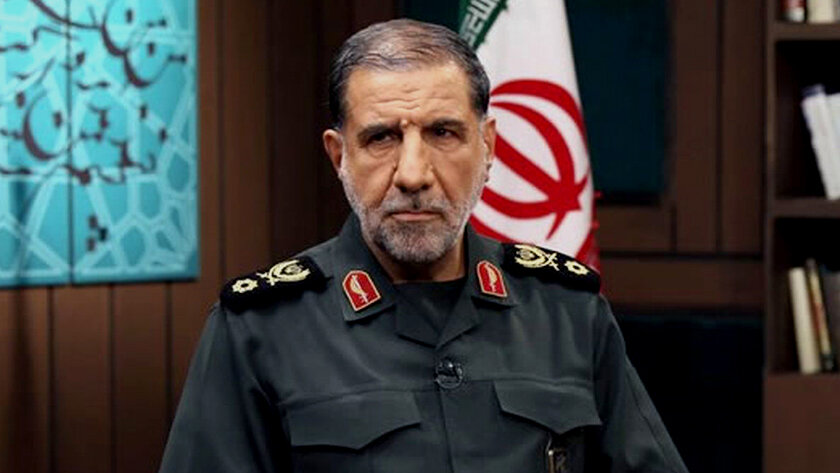IRGC official says Iran's conventional arms non-negotiable

TEHRAN - General Mohammad-Ismaeil Kowsari, the advisor to the IRGC commander, told Yemen's Al-Masira website on Thursday that conventional defense weapons are “our right” and cannot be negotiated in any way, and it is an issue on which there is consensus, according to Iran press.
“Iran has never sought war and has defense agents to deter any aggression and will respond to any aggression against its territory with power,” Kowsari warned.
In recent weeks, the Iranian Army and the IRGC have conducted various military exercises across the country. These drills involve homegrown missiles, drones, helicopters, submarines, military ships, and UAVs. Different missiles have been tested during the drills, including Zolfaqar Basir with a range of 700 km, Dezfoul with a range of 1,000 km, and Qiyam with a range of 800 km.
Iran has been insisting that its weapons are only deterrent.
When Iraq’s Saddam Hussein invaded Iran in the 1980s, no country sold missiles to Iran to defend itself.
Saddam’s army fired missiles on Iranian cities. The weapons were provided to the Saddam regime mostly by the Soviet Union and Western countries, particularly France. German and Dutch companies also provided materials to the Iraqi regime for building chemical weapons. The United States also supported Saddam in the war against Iran. It gave satellite images of the Iranian forces stationed in the border region.
The memories of the 1980-88 war is still haunting the Iranian nation. Once in a while remains of Iranian soldiers killed in the war are unearthed.
Though the United Nations faulted Iraq for invading Iran it failed to force Iraq to pay reparations to Iran.
General Kowsari also said Iran would fulfill its nuclear obligations only if the other parties fulfill their obligations in practice not in words.
Former U.S. President Donald Trump quit the 2015 nuclear agreement – JCPOA – and thereby violated United Nations Security Council Resolution 2231 which have confirmed the multilateral agreement. By leaving the legally binding agreement, the former U.S. administration not only returned sanctions lifted under the agreement it also added new ones.
Even European sides avoided to honor their commitments under a pressure from the Trump administration.
Now hopes for a revitalization of the agreement have been raised as new U.S. President Joe Biden has vowed to return to diplomacy with Iran. However, the question is who takes the first step.
Iranian officials have repeatedly stressed that Tehran has never left the agreement and it was the U.S. that quit the agreement and imposed sanctions on Iran and naturally it is the U.S. side that must take the first step to restore the nuclear deal.
In his latest remarks on the current state of play between Iran and the United States, Leader of the Islamic Revolution Ayatollah Seyed Ali Khamenei underlined the need for Washington to take tangible measures before Tehran makes any move on the 2015 nuclear deal.
Addressing the people of East Azerbaijan province on Wednesday morning, the Leader pointed out that the Islamic Republic has heard many words and promises from the other side about the nuclear deal, but this time only actions matter, and if the Islamic Republic sees actions from Europe and the U.S., it will act too.
“About the JCPOA, promises were made by the other side. I am saying one thing: We’ve heard many promises which were broken and contradicted in practice. Mere words don't help. This time only action! Action! If the Islamic Republic sees action from the other side, it will act too,” Ayatollah Khamenei said, adding, “We set the condition and the condition will not be retreated from.”
